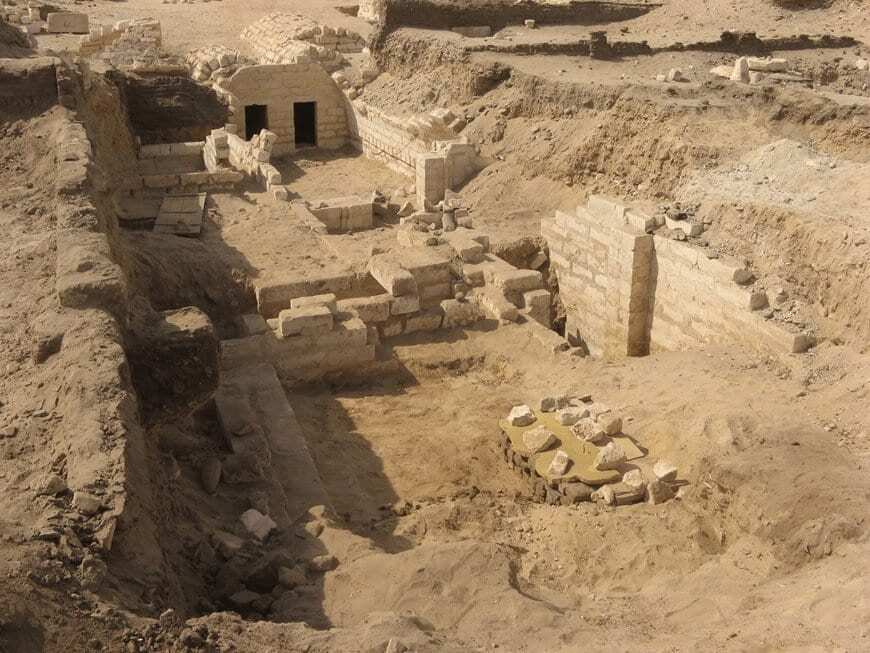Archaeologists from the University of Barcelona have been conducting excavations of the ancient city of Oxyrhynchus in Egypt.
Oxyrhynchus lies west of the main course of the Nile on the Bahr Yussef, a branch that terminates in Lake Moeris and the Faiyum oasis.
The researchers have focused their study on the architectonic structures and funerary rituals from the Saite Period (corresponding to the Late Period of Egypt, which started in the 7th century BC) until the Christian-Byzantine period.
In ancient Egyptian times, there was a city on the site called Per-Medjed, named after the medjed, a species of elephant fish of the Nile worshipped there as the fish that ate the penis of Osiris.
The team conducted anthropological studies of six individual gravestones and burials from the Saite Period and two from the Roman Period. They discovered artefacts dating from the Byzantine Period, including inkpots, bronze earrings, ostracons (pieces of pottery to write on) and a funerary gravestone from a freedman (libertus – a released slave).
The archaeologists excavated a large religious building from the Christian-Byzantine period, uncovering lesenes, cornices, and fragments of an arch that was decorated with plant and floral, geometrical and zoomorphic themes.
Header Image – Upper Necropolis, Roman period – Image Credit : University of Barcelona





